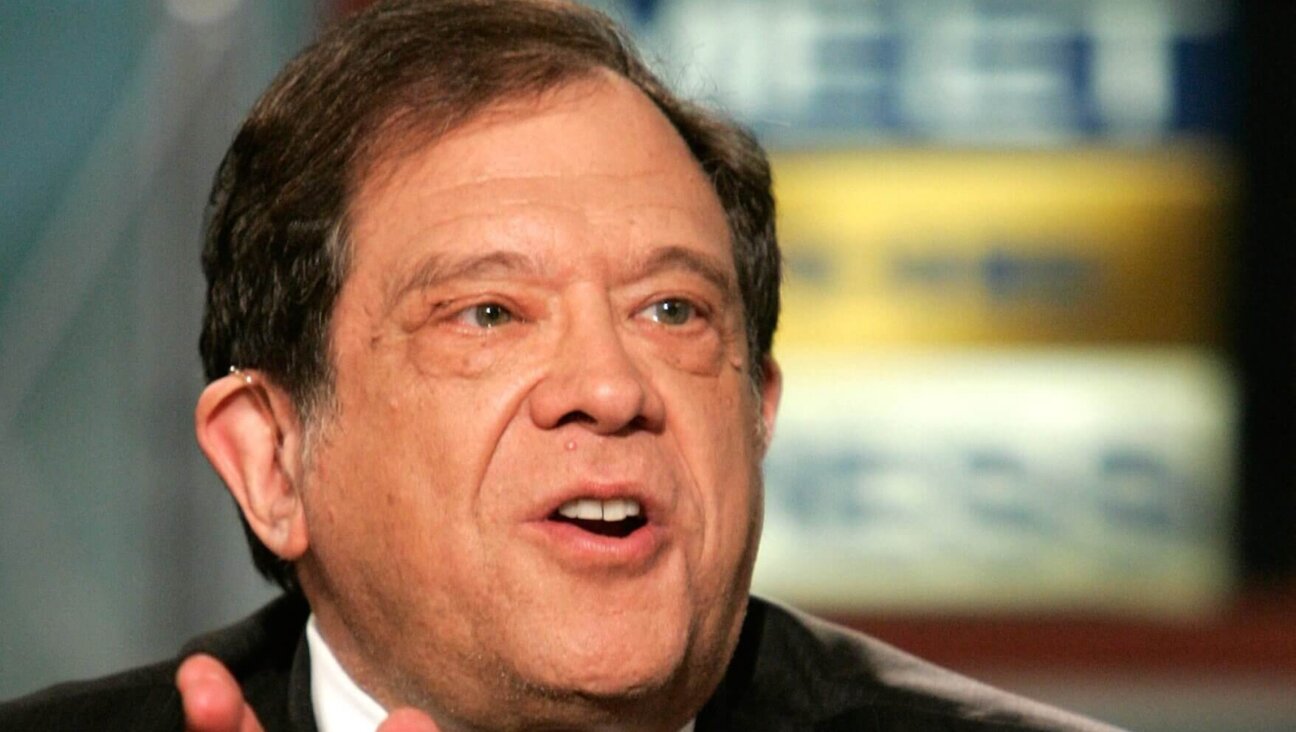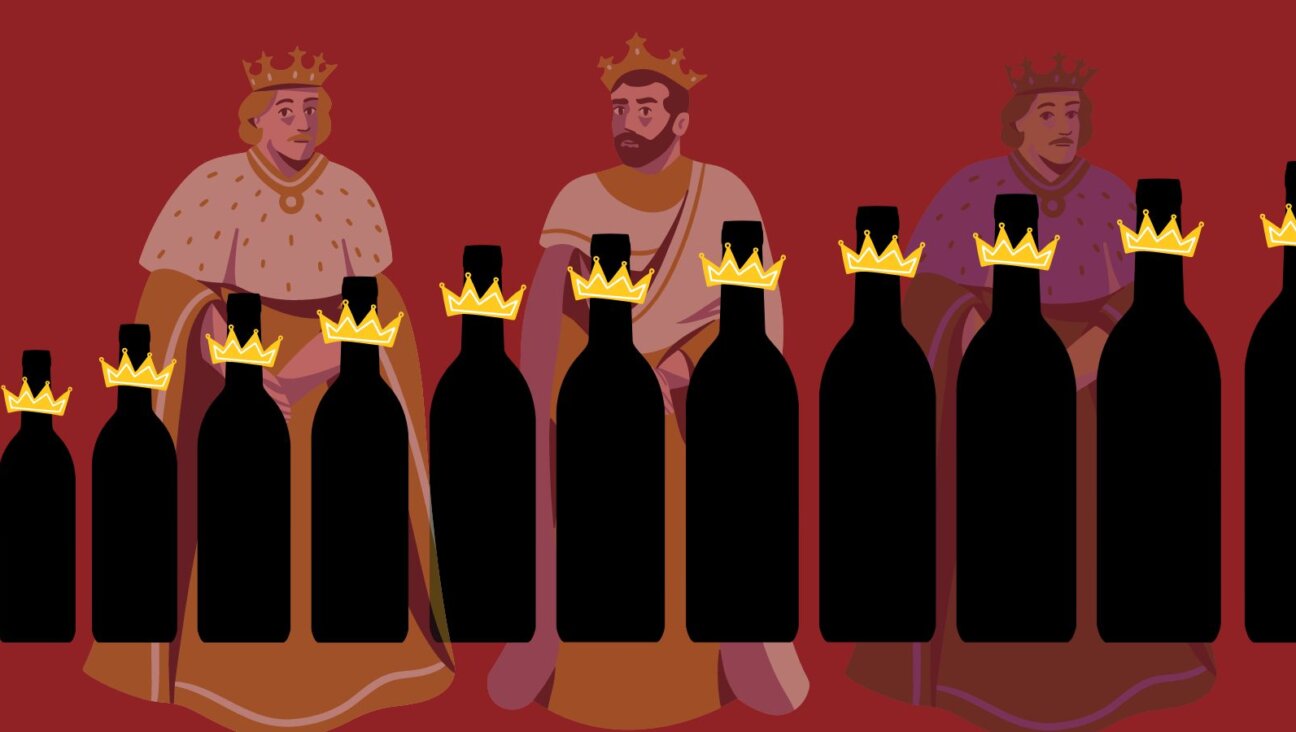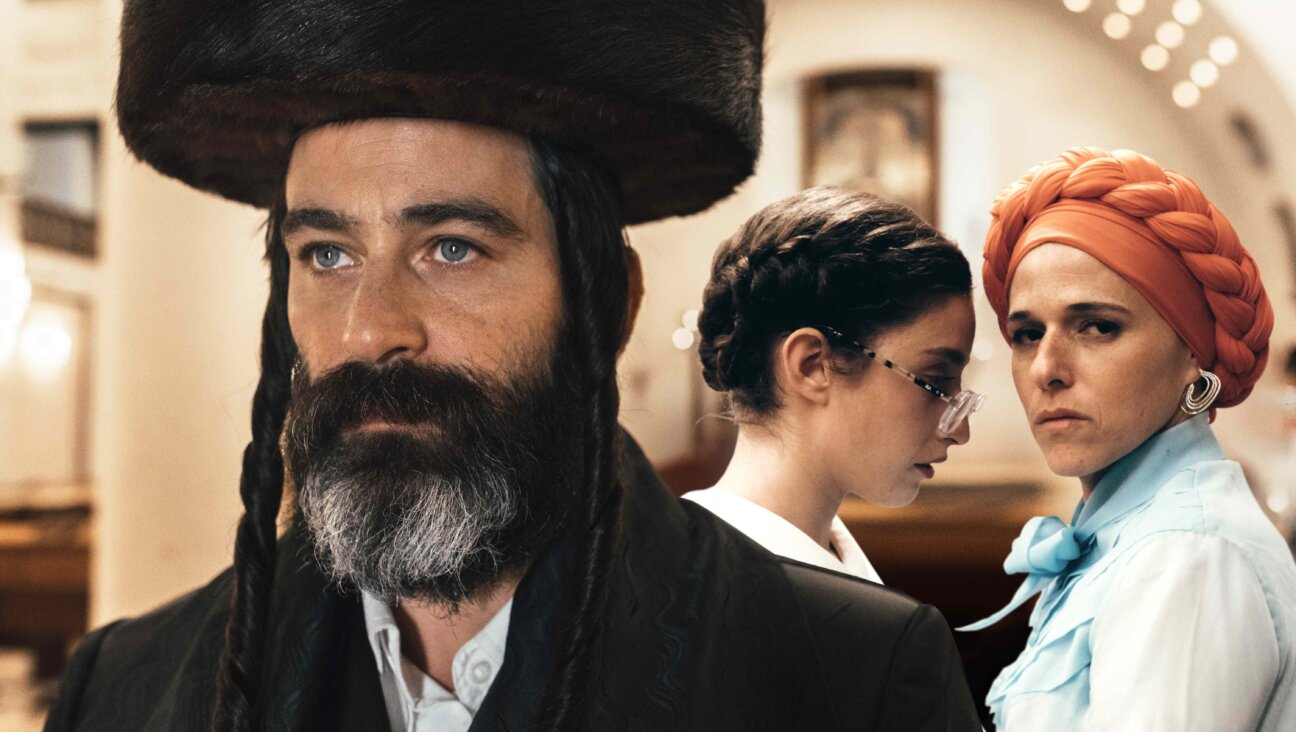Martin Scorsese’s ‘Silence’ Explores Faith When God Keeps Quiet

Martin Scorsese’s film ‘Silence’ Image by Paramount Pictures
When do you hear the voice of God?
Contemporary believers are caught in a conundrum. If they never hear God speaking, or even acting in ways consonant with theology, then surely they must doubt God’s very existence. And yet if they do claim to hear a bat kol – a Divine voice – surely they must doubt their sanity.
In Martin Scorsese’s lyrical, paradoxical new depiction of faith, “Silence,” the young Jesuit priest Rodriguez, played by Andrew Garfield (light years from his star turns as “Spider-Man”) pleads in desperation for God to answer him as he watches the faithful suffer. For a Jewish audience, this Catholic priest on mission in medieval Japan is an oddly familiar figure, reminding one of religious Jews in the Holocaust, wondering how God could allow evil to triumph unchecked.
Rodriguez’s God does, finally, speak — at precisely the moment when the priest rejects him. Compelled by the Japanese inquisitor to either desecrate an image of Christ or watch innocent Christians be tortured, Rodriguez hesitates before stepping on the image. And then he hears a voice. “Go ahead, step on me,” the voice says. “I am here with you.”
This is the gut-wrenching climax of “Silence,” and one which reflects the many paradoxes of Scorsese’s latest essay on faith. Many have already compared the film to “The Last Temptation of Christ,” except that this time, Scorsese has had an audience with the pope (a Jesuit himself) and is beloved of Christian conservatives, rather than condemned by them.
Yet “Silence” is actually far more heretical than “Last Temptation,” which included a sequence of Jesus fantasizing about a normal life with Mary Magdalene while he hung dying on the cross. This was Satan’s final temptation – a life of normalcy – and Christ passes the test, sacrificing himself, fulfilling his destiny.
Rodriguez does the opposite. After his apostasy, he gains exactly the life that Christ rejected: normalcy, marriage and children, comfort, and collaboration with the authorities in persecuting more Christians. Like Christ, he has sacrificed himself — by rejecting God, he has damned himself — yet shockingly, the film, based on the 1966 novel by the Japanese author Shusaku Endo, suggests that this public renunciation is what God truly wants.
At the start of the film, Rodriguez is the exact opposite of the man he becomes. Brash, certain, and arrogant, he and his partner, played by a gaunt and pitch-perfect Adam Driver, head off to Japan intending to exonerate their master, who is rumored to have apostasized himself. Impossible, Rodriguez says, and off he goes, despite a Japanese crackdown on Christians that had already led to thousands of executions.
Smuggled into Japan, they bring misery on everyone they meet. The secret Christians in one village embrace the priests, but word spreads, and the leaders of the community are crucified. Time after time, the faithful Christians martyr themselves for their faith — yet Rodriguez begins to doubt God’s will. By the time he is finally arrested, he is already vacillating between faith and doubt, hope and despair.
During this first half of the film, I was reminded of Daniel Boyarin’s 1999 volume Dying For God, which contrasted early Christian stories of martyrdom with contemporaneous Jewish stories of survival. In Talmudic texts, cunning rabbis outwit their persecutors, sneaking out of Jerusalem in coffins and evading capture for years. They are praised for living. Yet in Christian texts from the same period, martyrs are praised for refusing any compromise or stratagem — they are praised for dying, just as the Japanese Christians, and eventually Driver’s character, do.
Rodriguez, reunited with his fallen master, played by Liam Neeson (yes, the three priests are played by a Jedi, a Sith, and a superhero), makes the opposite choice. He publicly betrays his faith in order to fulfill it. His false, easy faith is renounced in favor of a true, contradictory one; the film suggests that he remains a faithful Christian inwardly, even after renouncing Jesus outwardly. He is more Jewish survivor than Christian martyr, reminding me of conversos, doenmeh, and other crypto-Jews who survived for centuries by keeping their faith a secret.
One difference between ancient Christian martyrs and Rodriguez’s non-martyrdom is, in fact, colonialism. Here, once again, it seems that Silence’s less attentive critics have gotten the film exactly backwards. Yes, the movie sets up the odious “white savior” narrative, in which a white hero saves passive non-white folks from their predicament (see “Amistad,” “Avatar,” “The Blind Side,” “Blood Diamond,” “Dances with Wolves,” “Glory,” “Lawrence of Arabia,” “Lincoln,” “To Kill a Mockinbird”). But then it thoroughly undermines it.
Not only does Rodriguez bring misery rather than salvation to the faithful, he is reproved by the Japanese inquisitor Inouye, played by Issei Ogata, for his arrogance. In several scenes, Inouye tells him that Christianity may be right for Europe, but it is wrong for Japan. He rejects Rodriguez’s Christian universalism. The mission of the Church, which in so many other films is valorized, here is heavily critiqued. Shockingly, the brutal repression of Christianity, involving mass torture, is partially justified by the film.
Once again, for a Jewish audience, the resonances are particularly strong. At the same time as Christians were being tortured in Japan, they were torturing Jews across Europe. And while the mission to Japan was a failure, it was a bloody, awful success in the New World. Surely Inouye is right that these innocent-seeming Christians are but the tip of the European spear.
Silence is thus a rejection of all kinds of certainty. The fake-faithful fundamentalists of today are certain that God’s voice is telling them to persecute Muslims, gays, women, and many others. They believe God is rooting for their football team, their army, their country. They may well thrill to the sight of faithful Christians martyring themselves in the film, but “Silence” ultimately rejects all such certainties. Life is far too complicated for the kinds of simplistic dogmas Rodriguez learns to set aside. In this film, God is affirmed precisely when God is denied.
As Kierkegaard wrote, the problem with the Biblical story of the Binding of Isaac is in its very first words: “And God said.” Abraham knows that God has spoken to him, and so his faith, while tested, is still immature. Given that certainty, even sacrificing one’s own son is, in a sense, reasonable.
The problem of the modern faithful, however, is God’s silence. We are not Abraham. We don’t know if God is speaking to us or not. Perhaps it is just the bicameral mind, a voice from within that sounds like it is from without. Perhaps we are simply talking to ourselves. Thus we must make our home in doubt, not certainty.
Thus it is a modern embrace of the Divine that is affirmed at the instant of Rodriguez’s heresy, when he finally values the lives of innocent people over his own salvation. Only then has he become worthy of hearing God’s voice, saying to him, “I was suffering with you, I was never silent.”

I hope you appreciated this article. Before you go, I’d like to ask you to please support the Forward’s award-winning journalism this Passover.
In this age of misinformation, our work is needed like never before. We report on the news that matters most to American Jews, driven by truth, not ideology.
At a time when newsrooms are closing or cutting back, the Forward has removed its paywall. That means for the first time in our 126-year history, Forward journalism is free to everyone, everywhere. With an ongoing war, rising antisemitism, and a flood of disinformation that may affect the upcoming election, we believe that free and open access to Jewish journalism is imperative.
Readers like you make it all possible. Right now, we’re in the middle of our Passover Pledge Drive and we need 500 people to step up and make a gift to sustain our trustworthy, independent journalism.
Make a gift of any size and become a Forward member today. You’ll support our mission to tell the American Jewish story fully and fairly.
— Rachel Fishman Feddersen, Publisher and CEO
Join our mission to tell the Jewish story fully and fairly.
Our Goal: 500 gifts during our Passover Pledge Drive!
























